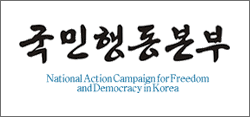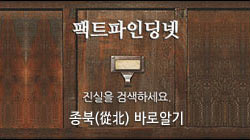The desire to force upon the people a creed which is regarded as salutary for them is, of course, not a thing that is new or peculiar to our time. New, however, is the argument by which many of our intellectuals try to justify such attempts. There is no real freedom of thought in our society, so it is said, because the opinions and tastes of the masses are shaped by propaganda, by advertising, by the example of the upper classes, and by other environmental factors which inevitably force the thinking of the people into well-worn grooves. From this it is concluded that if the ideals and tastes of the great majority are always fashioned by circumstances which we can control, we ought to use this power deliberately to turn the thoughts of the people in what we think is a desirable direction.
Probably it is true enough that the great majority are rarely capable of thinking independently, that on most questions they accept views which they find ready-made, and that they will be equally content if born or coaxed into one set of beliefs or another. In any society freedom of thought will probably be of direct significance only for a small minority. But this does not mean that anyone is competent, or ought to have power, to select those to whom this freedom is to be reserved. It certainly does not justify the presumption of any group of people to claim the right to determine what people ought to think or believe. It shows a complete confusion of thought to suggest that,
because under any sort of system the majority of people follow the lead of somebody, it makes no difference if everybody has to follow the same lead. To deprecate the value of intellectual freedom because it will never mean for everybody the same possibility of independent thought is completely to miss the reasons which give intellectual freedom its value. What is essential to make it serve its function as the prime mover of intellectual progress is not that everybody may be able to think or write anything, but that any cause or idea may be argued by somebody. So long as dissent is not suppressed, there will always be some who will query the ideas ruling their contemporaries and put new ideas to the test of argument and propaganda.〈Friedrich Hayek, The Road to Serfdom〉
물론 유익한 것으로 간주되는 신념을 사람들에게 강요하려는 욕망은 새로운 것도 아니고 우리 시대에 특유한 것도 아니다. 그러나 우리의 많은 지식인들이 그러한 시도를 정당화 시키는 근거로 주장하는 것은 그것이 새롭다는 것이다. 대중의 의견과 취향은 선전에 의해서, 광고에 의해서, 상류계급의 본보기에 의해서, 그리고 불가피하게 사람들의 생각을 낡은 관례 속으로 몰아넣는 여타 환경적 요인에 의해서 형성되기 때문에 우리 사회에는 진정한 사상의 자유가 없다고 말해진다. 이러한 이유로 대다수 대중의 취향과 사상이 우리가 통제할 수 있는 환경에 의해서 항상 형성된다면, 우리는 이 힘을 우리가 바람직하다고 생각하는 방향으로 대중의 생각을 향하도록 하기 위해서 사용해야 된다는 결론에 도달하게 된다.
대다수의 대중은 독자적으로 생각할 수 있는 능력이 거의 없다는 것, 대부분의 문제에 관해서 기존의 견해를 받아들인다는 것, 그들은 또 이런 저런 신념을 만들어 주거나 그런 신념으로 유도해 준다면 만족한다는 것은 사실일 것이다. 어느 사회에서도 생각의 자유는 소수에게만 직접적으로 중요할 것이다. 그러나 이것은 누구라도 이런 자유를 특별히 가질 수 있는 사람을 선발할 수 있는 능력이 있고 그런 권력을 가져야 한다는 것을 의미하지는 않는다. 그것은 확실히 특정 집단의 사람들이 국민이 무엇을 믿어야 하고 무엇을 생각해야 하는지를 결정할 권리를 주장하는 뻔뻔스러움을 정당화하지는 않는다. 어떤 종류의 체제하에서도 국민 다수가 어떤 사람의 영도를 따라가기 마련이기 때문에 모든 사람이 동일한 지도를 따라도 별다른 차이가 없다고 제안하는 것은 완전히 혼돈된 생각을 보여주는 것이다. 지적 자유가 모든 사람이 동일한 사고능력을 가진다는 것을 의미하지 않기 때문에 지적자유의 가치를 비하하는 것은 지적자유에 가치를 부여하는 이유를 완전히 놓치는 것이다. 지적 자유가 지적 발전의 원동력으로 기능하도록 하는 데 필수적인 것은 모든 사람이 어떤 것을 생각하거나 쓸 수 있다는 것이 아니고 누구라도 어떠한 주장이나 사상도 주장할 수 있다는 것이다. 異議(이의)가 억압받지 않는 한 동시대인들을 지배하는 생각에 의문을 갖고 새로운 생각을 논쟁과 선전의 시험대에 올리는 사람이 항상 존재할 것이다.
* 해설
Laskolnikov의 이런 ‘어이없는’ 독선은 당대 러시아 좌파들의 선민의식에 바탕을 두고 있었다. 그들은 인간을 특별한 사람 또는 초인과 보통사람으로 구분하고 자신들을 초인으로 간주하였다. 초인은 인간성에 내재하는 神性의 화신이기 때문에 무제한의 권력을 가지고 일반사람들을 지배하고 목적달성을 위한 재료로 사용할 수 있다고 생각하였다. 그래서 좌파들은 자신들은 초인과 같은 도덕적 절대자이기 때문에 선악에 대한 배타적 판정권이 있다고 광신하였다. 그래서 그들은 악인을 처단할 권리가 있으며 그들은 이런 사명을 가지고 태어났다고 생각하였다. Laskolnikov 당대 러시아의 사회주의자들 사이에서 널리 확산되고 있던 이런 ‘악마적 사상’의 소유자였다.
Laskolnikov 자신의 사상을 실천에 옮겨 전당포 노파 Alyona를 살해한다. 노파뿐 아니라 노파의 자매인 Elizaveta도 엉겁결에 살해한다. 그는 아무런 죄도 없는 두 할머니를 무참하게 살해하고서도 죄의식을 전혀 느끼지 않는다. 그는 고리대금업자는 가난한 사람들의 피를 빨아먹는 이나 빈대와 같은 해충이기 때문에 이들을 죽여서 없애 버리는 것이 정의의 실현이라고 확신하고 있었다. 그리고 인간 해충을 처단하는 것이 특별하게 태어난 사람들인 초인의 의무라고 생각하였다.
악령 Laskolnikov의 살인도끼는 20세기 최악의 살인 악마들인 스탈린, 모택동, 폴포트, 김일성 등으로 이어지며 1억의 Elizaveta(무고한 인민)를 살해하였다.













 朴承用
朴承用







 트위터
트위터 페이스북
페이스북 미투데이
미투데이 요즘
요즘 네이버
네이버































